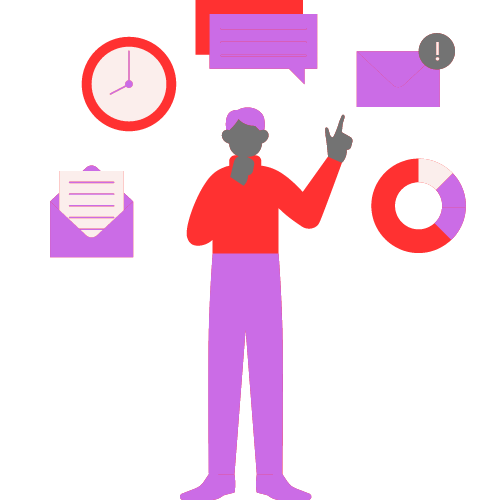I guess intrinsic motives (or motivation) starts from this point: "Be who you are and say what you feel, because those who mind don’t matter, and those who matter don’t mind." ~Dr. Seuss
Table of Contents
INTRODUCTION:
Yes, this is a quote from the famous children’s book author, Dr. Seuss.
It’s a great reminder that we should be true to ourselves and speak our minds, even if it means that some people may not approve of or agree with us.
The quote suggests that there will always be people who disapprove of or criticize us, no matter what we do or say. However, it also suggests that these people don’t really matter, as they may not have our best interests at heart or may not truly know us.

On the other hand, the people who truly matter in our lives will accept us for who we are, even if we express opinions or beliefs that they don’t necessarily agree with.
These are the people who truly know and love us and who will support us no matter what.
Ultimately, this quote is a reminder that we should be true to ourselves and not be afraid to speak our minds, even if it means facing criticism or disapproval.
By staying true to ourselves and expressing our thoughts and feelings authentically, we can build stronger, more authentic relationships with the people who truly matter in our lives.
Alright, let’s delve even further into this issue.
First of all, let’s think about why we say yes. There are many reasons why someone might say “yes” even if they do not want to.

Here are a few motives for saying “yes”
- Social pressure: Sometimes we may feel obligated to say “yes” to a request or invitation because we want to avoid disappointing someone or because we fear the social consequences of saying “no.” We may worry that we will be seen as rude, uncooperative, or unhelpful if we decline.
- Fear of missing out: We may say “yes” to something even if we don’t really want to do it because we don’t want to miss out on an opportunity or experience. We may worry that if we say “no”, we will regret it later or feel like we’re not living life to the fullest.
- Guilt: We may feel guilty or selfish for saying “no” to someone, especially if they are someone we care about or if the request is for something important. We may feel like we should always be available to help others or that saying “no” is a sign of weakness.
- Lack of assertiveness: Some people struggle with assertiveness and find it difficult to say “no” to others. They may worry that they will be seen as confrontational or aggressive if they decline a request, so they opt to say “yes” instead.
- Social pressure: Sometimes we may feel obligated to say “yes” to a request or invitation because we want to avoid disappointing someone or because we fear the social consequences of saying “no.” We may worry that we will be seen as rude, uncooperative, or unhelpful if we decline.

- Fear of missing out: We may say “yes” to something even if we don’t really want to do it because we don’t want to miss out on an opportunity or experience. We may worry that if we say “no”, we will regret it later or feel like we’re not living life to the fullest.
- Guilt: We may feel guilty or selfish for saying “no” to someone, especially if they are someone we care about or if the request is for something important. We may feel like we should always be available to help others or that saying “no” is a sign of weakness.
- Lack of assertiveness: Some people struggle with assertiveness and find it difficult to say “no” to others. They may worry that they will be seen as confrontational or aggressive if they decline a request, so they opt to say “yes” instead.
It’s important to remember that it’s okay to say “no” when we need to. We don’t always have to please others or accommodate their needs at the expense of our own well-being.
Learning to set boundaries and assert our needs can help us avoid the stress and resentment that can come from saying “yes” when we really want to say “no”.
It’s important to remember that it’s okay to say “no” when we need to. We don’t always have to please others or accommodate their needs at the expense of our own well-being.
Learning to set boundaries and assert our needs can help us avoid the stress and resentment that can come from saying “yes” when we really want to say “no”.
Power of saying NO!
The power of saying “no” lies in the ability to set boundaries, prioritize our own needs, and take control of our lives. Here are some of the benefits of learning to say “no”:
- Establishing boundaries: Saying “no” helps us set clear boundaries with others. It allows us to communicate what we’re comfortable with and what we’re not, which can help prevent misunderstandings and conflicts.

- Prioritizing self-care: When we say “no” to something that doesn’t align with our values or goals, we free up time and energy to focus on the things that matter most to us. This can help us prioritize self-care and improve our overall well-being.
- Building confidence: saying “no” can be empowering. It helps us assert our needs and values, which can build confidence and self-esteem over time.
- Increasing productivity: When we say “yes” to too many things, we can become overwhelmed and stressed. Learning to say “no” to plans that aren’t important can help us better manage our time and get more done.
- Respecting ourselves: Saying “no” is an act of self-respect. It communicates that we value ourselves enough to prioritize our own needs and goals.
- Improving relationships: Saying “no” can actually improve our relationships with others, as it allows us to be more honest and authentic. When we say “yes” to everything, we may end up resentful or burned out, which can strain our relationships. By setting boundaries and being honest about our needs, we can build healthier, more authentic relationships.
- Avoiding burnout: Saying “yes” to everything can lead to burnout, as we may end up overcommitted and overwhelmed. Learning to say “no” can help us avoid burnout by giving us more time to take care of ourselves and better manage our workload.
- Making better decisions: When we say “no” to things that don’t align with our values or goals, we create space to make better decisions about the things that do matter to us. It allows us to be more intentional about our choices and to focus on what’s most important.
- Reducing stress: Saying “no” can be a powerful stress-reducer. When we say “yes” to too many things, we may end up feeling anxious, stressed, or overwhelmed. By setting boundaries and learning to say “no” when necessary, we can reduce stress and cultivate a greater sense of calm and well-being.
- Respecting others: Finally, saying “no” can be a sign of respect for others. By being honest about what we can and cannot do, we allow others to make informed decisions about how to move forward. It’s important to remember that saying “no” doesn’t have to be confrontational or rude; it can be done in a respectful and compassionate way that honors both our own needs and the needs of others.
Overall, the power of saying “no” lies in the ability to take control of our lives and make decisions that are in our best interests. It allows us to live with intention and purpose, and to cultivate healthier relationships with others.
Developing the ability to say NO! (as the new motives bar)
Learning to say “no” can be challenging, especially if you’re used to saying “yes” to everything. Here are some tips to help you say “no” in a way that feels authentic and respectful:
Understand your priorities: Knowing what’s most important to you can help you make better decisions about where to spend your time and energy. Before agreeing to a request, ask yourself if it aligns with your values and goals. If it doesn’t, it may be easier to say “no.”
Practice saying “no”: Saying “no” can feel awkward or uncomfortable at first, especially if you’re not used to it. Practicing saying “no” in low-stakes situations can help you build confidence and get more comfortable with the idea.
Offer an alternative: If you want to say “no” to a request but still want to help, consider offering an alternative solution. For example, if someone asks you to take on a task that you don’t have time for, you could suggest someone else who might be able to help.
Be honest and respectful: When saying “no,” it’s important to be honest and respectful. Acknowledge the request and thank the person for considering you, but be clear about your limits and why you’re unable to help.
Practice self-care: Finally, it’s important to prioritize self-care when learning to say “no.” Saying “no” can be challenging, and it’s important to take care of yourself during the process.
Make sure you’re getting enough rest, exercise, and time for relaxation and reflection.
Remember, saying “no” is not a sign of weakness or selfishness; it’s a way to honor your own needs and priorities. By learning to say “no” in a respectful and authentic way, you can improve your personal development and cultivate healthier, more fulfilling relationships with others.
Set clear boundaries: Setting clear boundaries can help you communicate your limits and avoid overcommitting yourself. Be clear about what you’re willing and able to do, and communicate those boundaries to others.
Consider the consequences of saying “yes”: When deciding whether to say “yes” or “no” to a request, consider the consequences of each choice. Saying “yes” may lead to overcommitment, stress, and burnout, while saying “no” may allow you to prioritize your own needs and reduce stress.
Practice being assertive. Being assertive can help you state your needs and limits clearly and with confidence. Use “I” statements, set clear boundaries, and talk about your needs and feelings in a respectful way to get better at being assertive.
Learn to tolerate discomfort. Saying “no” can feel uncomfortable or awkward, especially if you’re used to saying “yes” to everything.
Learning to tolerate that discomfort and move through it can help you build confidence and resilience over time.
Be mindful of your language: The way you frame your response can make a big difference in how it’s received. Don’t say things that are too sorry or defensive, and be clear and direct in your answer.
Additional methods of simply saying “no” in regular life are listed below:
- “That’s really interesting, but I’m afraid I’m too busy right now to participate.”
- “I can’t take on anything new at this time.”
- “Despite the fact that “that sounds like a great opportunity,” I will have to decline this offer.”
- “You’re very kind to think of me, but I’m going to have to pass on this.”
- “During non-business hours, I won’t respond to emails.”
- “I wish I could, but alas, time is not on my side right now.”
- “It’s not convenient for me at this time.”
- “The phrase “I won’t be able to help this time” also comes to mind.”
Final Words;
We learn early on to confidently and clearly say no to anything other than a yes or a no when someone asks us.
Do you want to come in and start preparing dinner? No! Ready to turn off the TV and go to the store? No! Do you want to put on the holiday sweater grandma knitted for you last year, complete with sequins and glitter? What’s going to happen next is obvious to you.
As we mature, we gain an appreciation for proper behavior. We understand that there will be times when we must perform unpleasant tasks. As a result, we always take into account the opinions and perspectives of those around us.
Finding a middle ground between selflessness and self-interest is a lesson not all of us get.
Our time is valuable, but it’s hard to show it when we have to respond to a million messages on our voicemail, email, instant message, and text.
We know it’s important to have clear boundaries if we want to reach our goals and stay sane, but if we can help it, we’d rather not let anyone down or leave them hanging.
Being kind and willing to make sacrifices is admirable, but trying to please everyone will backfire. It’s inevitable that you’ll run out of steam and energy at some point.
Even though you know you should, you’ll be too tired to put any real effort into the activities at hand. You’ll try to pay attention, but you won’t be able to. You’ll pretend you’re okay with it, but inside you’ll be seething.
Make a plan today for how you will take care of yourself, and stick to it. If someone asks for your help when you have other things to do, politely say no unless it’s an emergency.
No matter the subject, it must be dealt with. Only by prioritizing your own needs above those of those around you can you hope to be both strong and helpful. People who care about you want to make you happy as much as you want to make them happy, so do what make you happy.
9 Reasons To Counting You Blessings (Even When Life Is Not Perfect Right Now!)
9 Reasons To Counting You Blessings (Even When Life Is Not Perfect Right Now!)
9 Reasons Why Accepting Change Is So Important For Personal Growth Growth
How To Be Joyful With Your Life Right Now: 13 Tips


